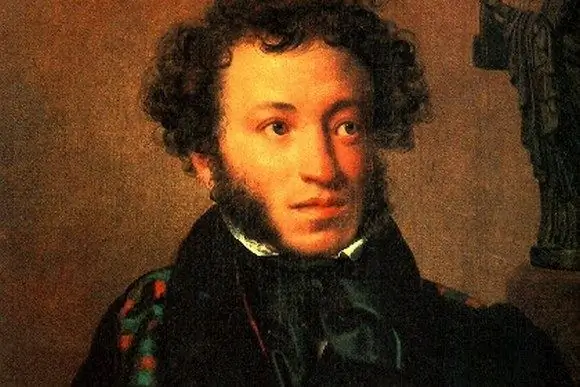- Author Nora Macey macey@family-relation.com.
- Public 2023-12-16 10:17.
- Last modified 2025-01-23 08:47.
It is not for nothing that writers and poets are called "engineers of human souls." Sometimes one apt phrase from a novel or poem can say more about human nature than the most thorough psychological research.

Many true "pearls" of psychological observation can be found in the works of A. Pushkin. One of these quotes, which separated from the original source and began to "live their own life in the language" can be considered the phrase "The habit is given to us from above."
Larina the elder and habit
The phrase about the "given from above" habit, which became winged, came from Pushkin's novel in verse "Eugene Onegin". Completely this thought sounds like this:
"The habit is given to us from above, She is a substitute for happiness."
With these words, the poet sums up the description of the fate of mother Tatyana and Olga Larin. It is noteworthy that this heroine - unlike the girls' father - is not even named by name. The name could be anything - such a fate seemed so typical for young noblewomen of that era.
In her youth, Tatyana's mother appears as one of those whom the literary critic V. Belinsky contemptuously called "ideal virgins." Her reading circle is made up of French and English novels, into which she does not delve deeply, which does not interfere with external imitation. As a romantic heroine "deserves", she is engaged to one, but loves another. However, the beloved is very far from the romantic ideal - an ordinary dandy and a player.
The desire to surround herself with romantic images reaches the point that the young noblewoman gives French names to her serfs (“she called Polina Praskovya”). But time passes, the girl gets married, plunge into everyday life, take up the management of the farm in the estate. Gradually, this way of life becomes familiar, and now the heroine is quite happy with her life. Maybe she cannot be called insanely happy - but the stability of her usual life suits her perfectly.
Source
Summing up the "biography" of Larina Sr., A. Pushkin quotes in a free translation the dictum of the French writer F. Chateaubriand: "If I had the folly to still believe in happiness, I would have looked for it in a habit." Drafts have survived, which indicate that initially this phrase was supposed to be put into Onegin's mouth - the hero had to say this to Tatyana, explaining himself after receiving the letter. Probably, the author abandoned this idea because some contradiction could arise, because Onegin just represents the habit as the enemy of happiness (“I, no matter how much I love you, getting used to it, I will stop loving you immediately”).
However, these words would fit quite organically into the image of Onegin. Evgeny's explanation with Tatiana is not just a clash of the fantasies of a young girl with harsh reality, it is a clash of romanticism and realism, which took place in the work of A. Pushkin at a certain period.
In Eugene Onegin, this motive occupies a significant place. Lensky - a romantically inclined young man - dies, unable to withstand a collision with a harsh reality. However, the author does not spare either his poems or the youngest poet: according to the author, Lensky was destined to forget both poetry and romantic aspirations for youth, plunge into everyday life and become an ordinary citizen. In other words, the same thing that happened to Tatyana's mother should have happened to Lensky: the replacement of happiness with habit. This opposition renders a merciless verdict to romanticism, which Pushkin himself recently parted with.






